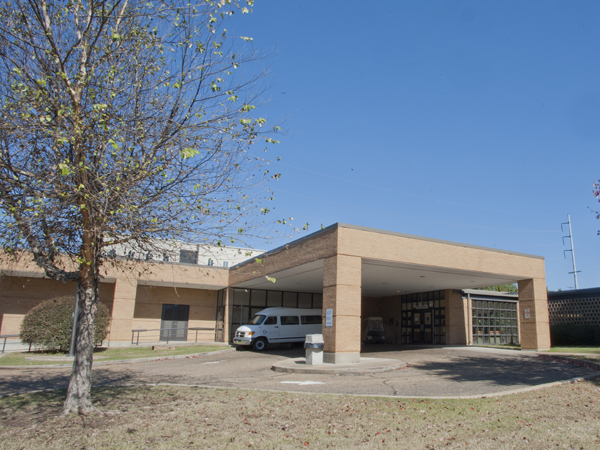Vacant UMMC rehab facility to be repurposed as Ebola unit

A decommissioned patient-care building at the University of Mississippi Medical Center is being retrofitted as an isolation and treatment unit in the event of a confirmed or probable Ebola case in Mississippi, UMMC and state health officials announced today.
UMMC officials said they are in the process of renovating space in the former University Rehabilitation Center (URC), a stand-alone structure removed from other patient-care facilities on campus. URC closed in late October as part of a planned consolidation of inpatient rehabilitation services with Methodist Rehabilitation Center, also on the UMMC campus.
“The availability of this unit allows us to sequester the care of a patient away from our other patient-care activities and indeed to physically isolate the case from the rest of campus,” said Dr. James E. Keeton, UMMC vice chancellor for health affairs and dean of the School of Medicine.

State Health Officer Dr. Mary Currier emphasized that the chances of an actual case appearing in the state are still extremely low, but developing a specialized unit where well-trained staff can safely care for a patient is crucial for the state to be fully prepared.
“As travelers from the countries with ongoing Ebola transmission are being monitored by public health, there is very little risk of a patient appearing here without the Mississippi State Department of Health (MSDH) already knowing about them,” Currier said. “In the unlikely event we did have a confirmed or probable Ebola case, the patient would then be directed to UMMC for care. I do believe our state’s academic medical center is uniquely positioned to take on that responsibility and we are grateful.”
Patients who have recently traveled to West Africa and who develop symptoms consistent with Ebola virus would be considered a probable case. At this time, the MSDH is not monitoring any travelers or health-care workers exposed to Ebola.

Several rooms in the URC are being adapted as a biocontainment unit that can accommodate up to two patients. The renovation will take two weeks, according to Jonathan Wilson, UMMC’s chief administrative officer.
“We judged that we could retrofit the facility to meet all the necessary requirements to, first and foremost, protect our clinical and support staff, and second, provide appropriate care to our patient,” Wilson said. “URC has the advantage of being one of the few buildings on campus that is completely self-sufficient and physically isolated from every other building at UMMC.”
UMMC has been intensively training a team that would be involved in the direct care of a patient, should there be one. Since providing care will be a round-the-clock activity, the Department of Health is asking other hospitals to identify experienced clinical volunteers who could augment UMMC’s Ebola care team.
“Providing 24/7 care to one of these patients through the course of their illness requires a staff of as many as 100 people, which will adversely impact UMMC’s normal operations,” said Currier. “We need to recruit some volunteers to help lighten this load.”
Keeton said the current preparations for Ebola will lay the groundwork for the development and maintenance of a permanent team of health-care workers specially trained to handle infectious disease outbreaks and other biological threats.


